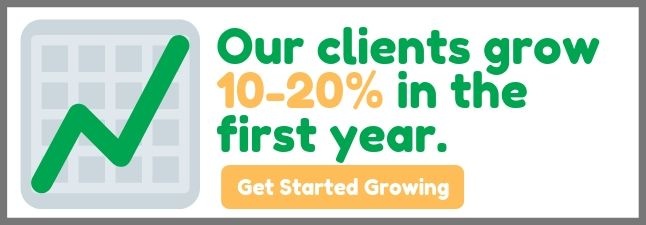Posted by Todd Hockenberry ● Sep 27, 2022
How Not to Grow Your Business
A few years ago, we bought a new car, and at exactly the three-year mark, the dealer started a campaign to get me to churn and buy a new one. The old ‘we have a high demand for your model, come in for an estimate’ pitch was the play they chose to run on me.
This must be a car dealer standard campaign because our other car is from a different company, and they do the same at the three-year mark.
 I told the rep I was the buy and hold persona and kept my cars for 10+ years. This broke their brains, it seems they don’t have an offer for a person like me. After five straight months of calls and regular postcards in the mail with the exact same pitch, I asked them to make a note in my account to stop calling.
I told the rep I was the buy and hold persona and kept my cars for 10+ years. This broke their brains, it seems they don’t have an offer for a person like me. After five straight months of calls and regular postcards in the mail with the exact same pitch, I asked them to make a note in my account to stop calling.
They could not or would not stop calling.
So I said, if you call me again, I will never step foot in your dealership again and will tell everyone I can about my bad experience even though I was happy with the product; the ongoing experience was so highly annoying that they ruined our relationship and destroyed any trust I had in them.
Guess what? They called the next month again. I then told them that they would never see me again. The manager then called and offered a $50 off coupon for my next service. I said you weren’t listening, I am gone forever. She said she would remove my name from the CRM and not call again - how’s that for a solution?
The next month they called again and still send me the postcards to this day.
Would you treat someone face to face that way? Would you ask a prospect, much less a customer, the same question five times in a row, hoping to get a different answer?
How hard would it have been to have an offer for me? Concierge service for people that want to keep cars for a long time? An expert in car maintenance to be a personal advisor? Anything! But they could not even think in these terms. Everyone was in the same bucket.
So I switched dealers for my service, and while waiting for my car, a lady walked up to me and says, ‘we have a high demand for your model, and would you like to get an estimate for your trade-in value?’ I said no and that I keep my cars for a long time. She said thanks and walked away. What a wasted opportunity. I was a captive audience, and there was no interest in understanding me, my goals for the car, and my plans. All they have is a script with no interest at all in me and my goals. Completely impersonal.
What does this story have to do with manufacturers?
Turns out a lot.
Most industrial companies act in exactly the same way. They view their buyers as one undefined market with only one pathway to buying.
Few customize the buying process and match the buyer journey to the ideal target persona. I am confident that most manufacturing companies do not even know their ideal buyer persona or why they buy.
What is a persona?
An ideal buyer persona is a documented representation of the person your organization helps the most. A persona embodies a person, not a large, amorphous, demographic-driven market segment. Initial persona assumptions are supported by user data that confirm behavior and create a complete view of the ideal customer and how you help them achieve their strategic goals.
“Helping is the essence of the “they ask, you answer” idea. We don’t base our decisions on competitors. We don’t base our decisions on bad fits that aren’t ideal customers or clients anyway. We base our decisions on prospects that are a good fit for our business. If that is whom we’re focused on, then it gives us the ability to communicate however we want and be totally honest and be totally real. We don’t have to fluff it; we don’t have to do any of that stuff. We can be straightforward with the information and give it to people directly. That wins us trust, and ultimately trust is what drives revenue.” Marcus Sheridan, Inbound Organization, Wiley 2018
An inbound organization focuses a lot of energy and time on personas because it allows them to understand their buyer at an emotional level. A persona, if built correctly, goes beyond descriptive information and includes buying insight. It includes the buyer’s words and ideas, heard directly from them, and speaking directly to how, when, and why they buy.
A persona done correctly tells you the things that trigger an investment, identifies potential objections, and what strategic outcomes the buyer expects from the purchase.
The more effectively you target your ideal buyer persona and their problems and goals, the more successful you are likely to be. The more specific your niche, the easier it will be to talk directly to the people who make up that niche.
This idea is not a new one, but in my experience, most companies do not put in the work to understand their buyers at this level.
And that is a great way not to grow your business.
Topics: Sales, Inbound Organization






